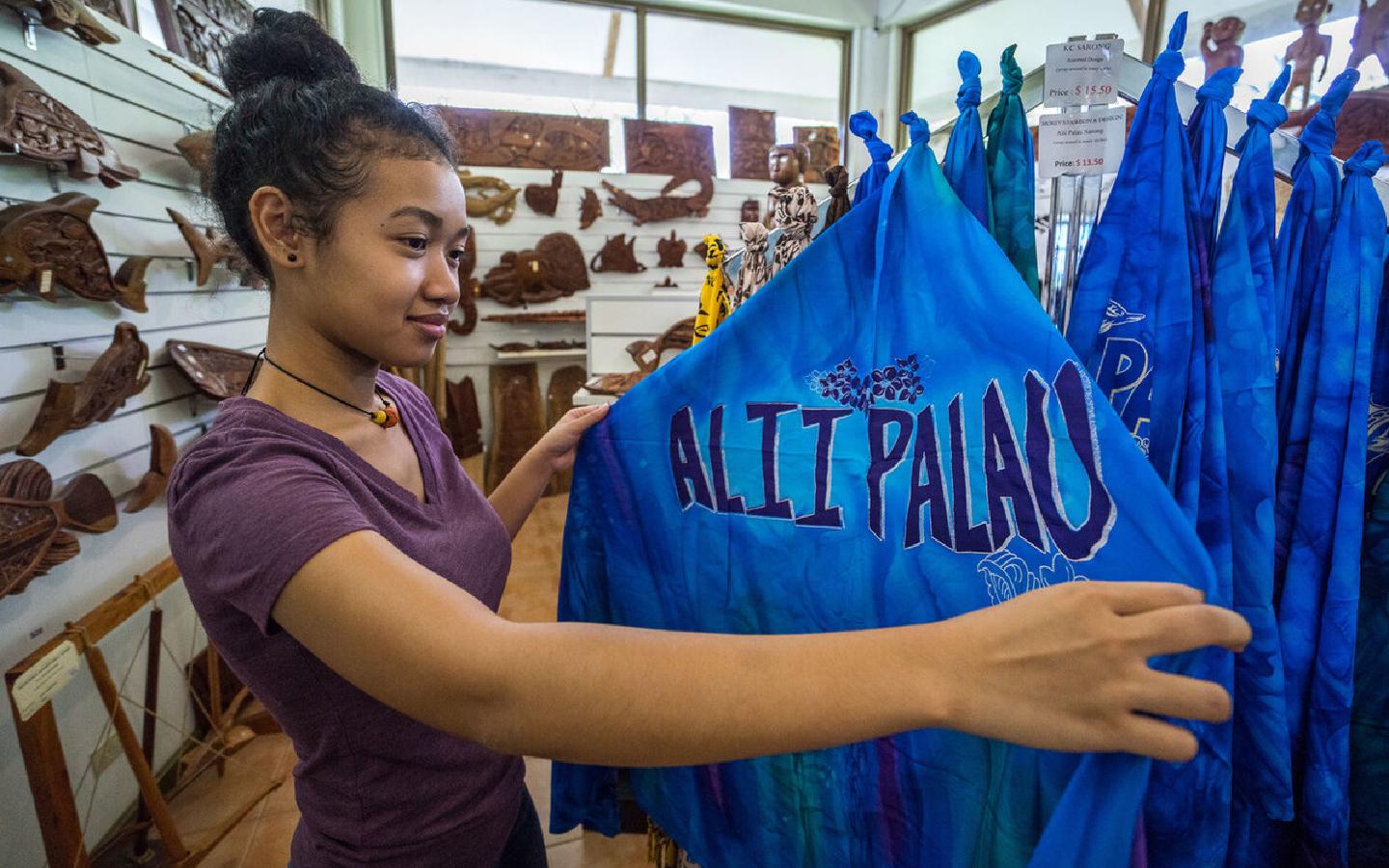Women and the “energy-poor” in Palau can now access loans for disaster-resilient, energy-efficient solutions to power households, thanks to ADB and Japan.
Energy Poverty in Palau
In a country wrestling with energy poverty, energy-efficient technologies are a much-welcomed relief for households that spend about 18% of their income on energy expenses. Many “energy-poor” households in Palau have little or no access to modern energy technology or services. They often limit their use of electricity and opt for more frugal living. Households headed by women are particularly more vulnerable to energy poverty because of women’s limited access to credit.
In addition, Palau needs a more resilient energy infrastructure. The country’s centralized electricity network is highly vulnerable to typhoons, earthquakes, tsunamis, and other disasters caused by natural hazards. The country also relies highly on expensive and imported fossil fuels, which account for over 95% of electricity generation.
The government is keen on diversifying its energy generation mix to include more indigenous, renewable energy resources. The current electrification rate is 95%, but installed renewable energy is estimated to cover less than 3% of electricity demand. However, funding provided by the National Development Bank of Palau (NDBP) for energy efficiency projects has declined in recent years, constituting less than 1% of the bank’s total loan portfolio, mainly because of limited financial resources and higher capital costs of rooftop solar power generation systems.
Inclusive Clean Energy Financing
But change is coming. Solar water heaters and rooftop solar power generation systems will soon become common fixtures in poor households in Palau. To support Palau’s efforts to improve energy resilience to disaster risks, as well as to expand energy efficiency and renewable energy, ADB approved a financing package in 2020 for the establishment of the Disaster-Resilient Clean Energy Financing facility. This facility is accessible to women and poor households through on-lending by the NDBP.
“Palau needs more power—more resilient power and more inclusive power. The ADB–Japan partnership on disaster-resilient clean energy financing is bringing energy-saving technologies to poor households in Palau,” said Rafayil Abbasov, senior energy specialist at ADB. “It also bolsters the government’s contribution to the global fight against climate change.”
Aside from ADB, contributions to the Disaster-Resilient Clean Energy Financing facility came from the Japan Fund for Prosperous and Resilient Asia and the Pacific (formerly, the Japan Fund for Poverty Reduction) and the Japan Fund for the Joint Crediting Mechanism.
About 80% of the on-lending of the National Development Bank of Palau (NDBP) is allocated for the purchase and installation of energy-efficient rooftop solar power generation systems, while 20% of the loans are for solar water heaters. At least 50% of the loans are to be disbursed to poor and low-income borrowers.
The NDBP is also adopting a gender-inclusive lending policy to improve the accessibility of its lending products for eligible women borrowers. About 20% of the loans are allocated for women borrowers to provide households headed by women access to concessional clean energy financing.
In 2023, the Japan Fund for the Joint Crediting Mechanism provided additional financing to the Disaster-Resilient Clean Energy Financing facility for low-carbon technologies in clean energy projects made available to commercial enterprises, including women-led businesses. The technologies include rooftop solar photovoltaic, battery energy storage systems, and energy management systems for commercial buildings and other nonresidential establishments.
Women Powering Homes
The financing facility is ADB’s first-ever financial intermediation project in Palau (and in other Pacific developing member countries) that exclusively targets disaster-resilient clean energy financing available for low-income and women beneficiaries.
To date, the National Development Bank of Palau (NDBP) has received $2.5 million or 83% of the ADB financing. The amount is expected to cover the supply of solar photovoltaic installations for about 380 loan applications from individual customers. Since the facility’s commencement, the NDBP has disbursed 135 loans exceeding $1 billion as of September 2023. Women beneficiaries comprise 46% of those loans, well above the 20% target.
Crucially, the project recognizes the gender gap in energy expenditures, with households headed by women being more vulnerable. By providing inclusive financing, the project uplifts the most vulnerable and acknowledges the pivotal role women play in household energy decisions.
"Palau needs more power—more resilient power and more inclusive power. The ADB–Japan partnership on disaster-resilient clean energy financing is bringing energy-saving technologies to poor households in Palau."
~ Rafayil Abbasov, ADB senior energy specialist
Share

